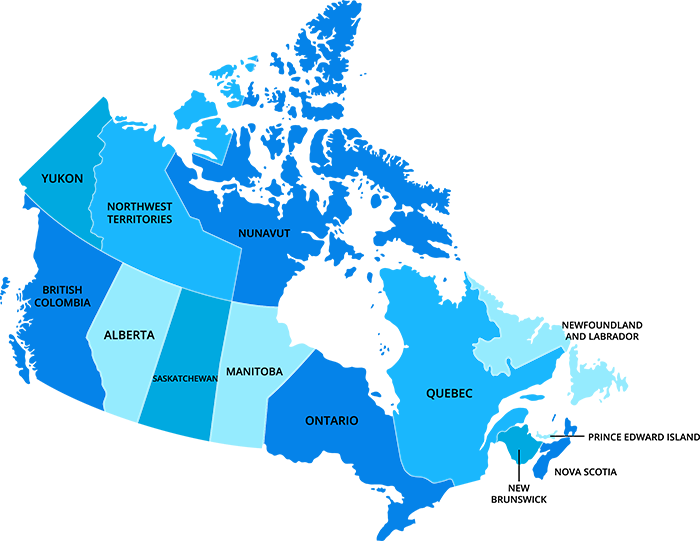CIHR Intersectoral Prevention Research Teams
CIHR is pleased to share some of the exciting research that was supported through the team grant funding opportunity on Intersectoral Prevention Research. The focus of this funding opportunity is to help us gain a better understanding of how we can make improvements to the spaces in which we live, work and play so that we may live with optimal health.
These Intersectoral Prevention Research Team grants are part of CIHR’s Environments and Health Signature Initiative and provide a wonderful example of interdisciplinary, applied public health work funded by CIHR. Learn more about how the results from their research will directly contribute to our understanding of what constitutes a healthy environment to build more effective disease prevention and health promotion strategies.

Research Profiles
-
Alberta
Promising safety interventions to ensure Canadian children are seen and not hurt!
Principal Investigator: Dr. Brent Hagel
Institution: University of Calgary (Calgary, AB)
Funding: $1.9 MillionThis team will study features of our communities and the impact on the likelihood of children getting hurt by using active transportation.
The future of water management: A life-source rather than a resource
Principal Investigator: Dr. Nicholas Ashbolt
Institution: University of Alberta
Funding: $1.9 MillionThis team will develop a framework for wastewater reuse in Canada.
-
British Columbia
The ECHO network
Principal Investigator: Dr. Margot Parkes
Institution: University of Northern British Columbia
Funding: $1.9 MillionThe ECHO Network brings together experts in natural resources and social and environmental change to strengthen intersectoral capacity to understand and respond to health impacts of resource development.
-
Nova Scotia
Scientists in Canada and South Africa join forces to uncover the protective factors that build youth resilience
Principal Investigator: Dr. Michael Ungar
Institution: Dalhousie University
Funding: $2 MillionThis Resilient Youth in Stressed Environments (RYSE) project will examine patterns of resilience among young people in response to exposure to petrochemical production and how communities and environments can impact resilience.
-
Ontario
Using Indigenous knowledge to understand and manage the agri-health effects of climate change
Principal Investigator: Dr. Sherilee Harper
Institution: University of Guelph
Funding: $2 MillionThis team will examine climate change and the impact on indigenous food systems, food security and food safety.
A SHARED Future
Principal Investigator: Dr. Heather Castleden
Institution: Queen’s University
Funding: $2 MillionThis team will strengthen health through renewable energy development.
-
Quebec
The MUSE Team: Building on scientific evidence to respond to 21st century urban health and equity challenges
Principle Investigator: Dr. Lise Gauvin
Institution: Université de Montréal and CRCHUM (Université de Montréal Hospital Research Center)
Funding: $2 MillionThis team will evaluate the health impacts of chemicals in our environment and how to prevent exposure by identifying safer alternatives.
The Path to a Safer Tomorrow: Replacing everyday chemicals with safer alternatives
Principal Investigator: Dr. Barbara Hales
Institution: McGIll University (Montreal, QC)
Funding: $2 MillionThis team will study features of our communities and the impact on the likelihood of children getting hurt by using active transportation.
Creating healthy cities by design
Principal Investigator: Dr. Yan Kestens
Institution: Université de Montréal and CRCHUM (Université de Montréal Hospital Research Center)
Funding : $2 MillionThis team will study how we can design cities in ways that promote good health, reduce health inequities, and guide sustainable urban development.
- Date modified: